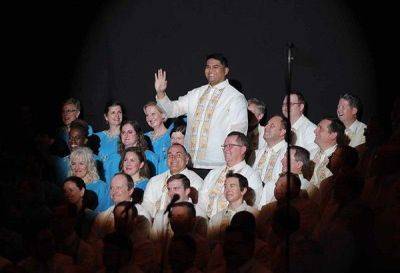Researchers start to find clues on the trail of long COVID-19
PARIS, France — Tens of millions of people across the world are thought to suffer from long COVID-19, but four years after the pandemic was declared this elusive condition still cannot be tested for -- let alone treated.
However research could be finally starting to find early clues on the trail of long Covid, raising hopes of future breakthroughs that may also illuminate other stubbornly ambiguous chronic syndromes.
Long Covid is the name given to a wide variety of symptoms still being suffered by people weeks and months after they first contracted the SARS-CoV-2 virus.
The most common are fatigue, shortness of breath, muscle pain and brain fog.
One notable study released last month showed there were significant differences in the proteins of the blood of more than 110 long Covid patients.
Onur Boyman, a Swiss researcher and senior author of the Science study, told AFP he believes this is a "central puzzle piece" in what keeps Covid raging for so long in the bodies of some people.
Part of the body's immune system called the complement system, which normally fights off infection by killing infected cells, remains active in people with long Covid, continuing to attack healthy targets and causing tissue damage, the researchers said.
Boyman said that when people recovered from long Covid, their complement system also improved, suggesting a strong link between the two.
"It shows that long Covid is a disease and you can actually measure it," Boyman said, adding the team hopes this could lead to a future test.
Researchers not involved in the study cautioned that this complement system "dysregulation" could not explain all the different ways that long Covid seems to attack patients.
Still, it is "great to see papers coming out now showing signals which might start to explain long Covid", said Claire Steves, professor of ageing and health at King's College London.
Lucia, a US-based long Covid sufferer who preferred not to give her last name, told AFP that "studies like these bring us a lot closer to understanding" the condition.
She pointed to another recent paper which found damage and fewer mitochondria in the muscles of long Covid patients, which could indicate why




